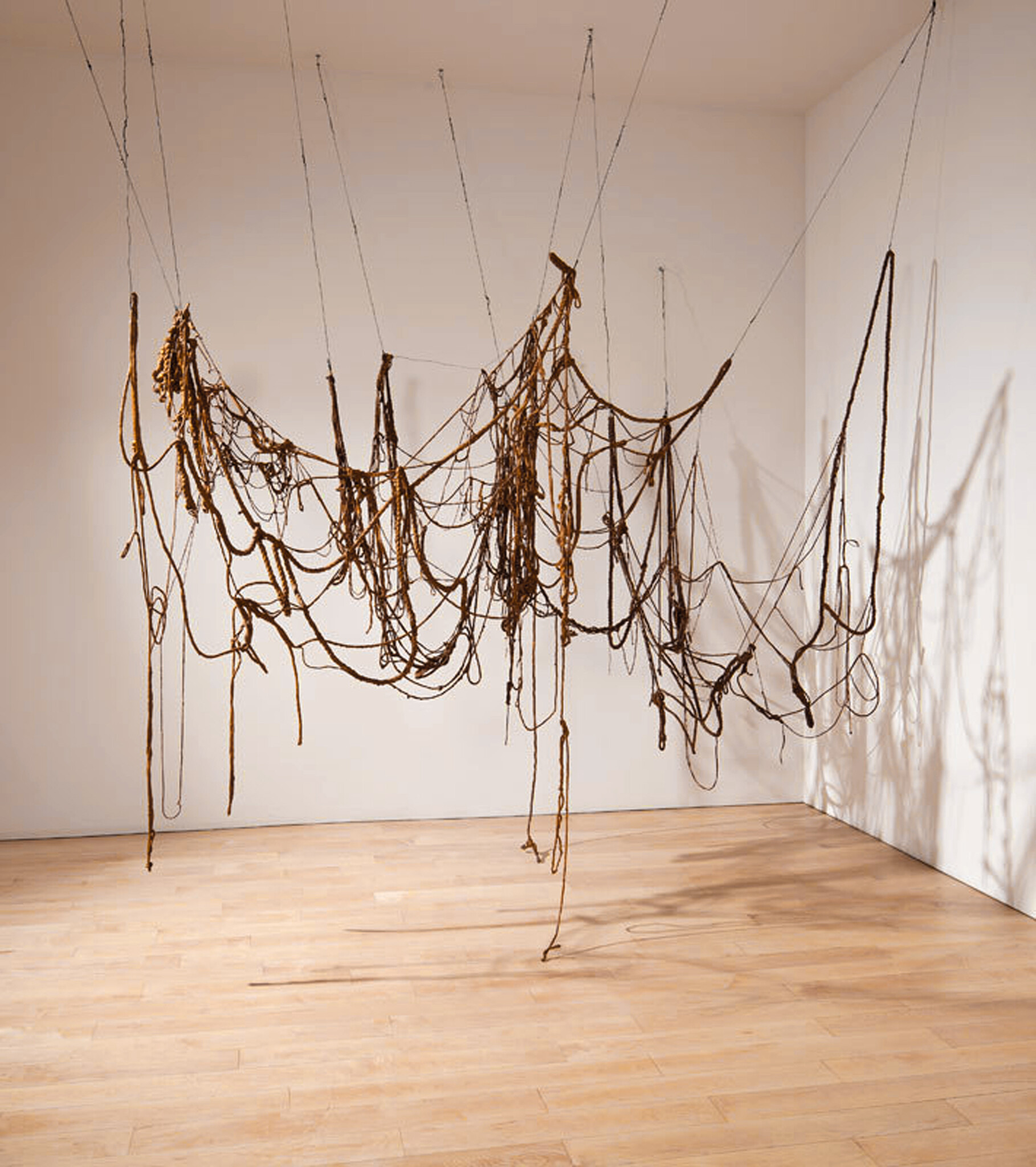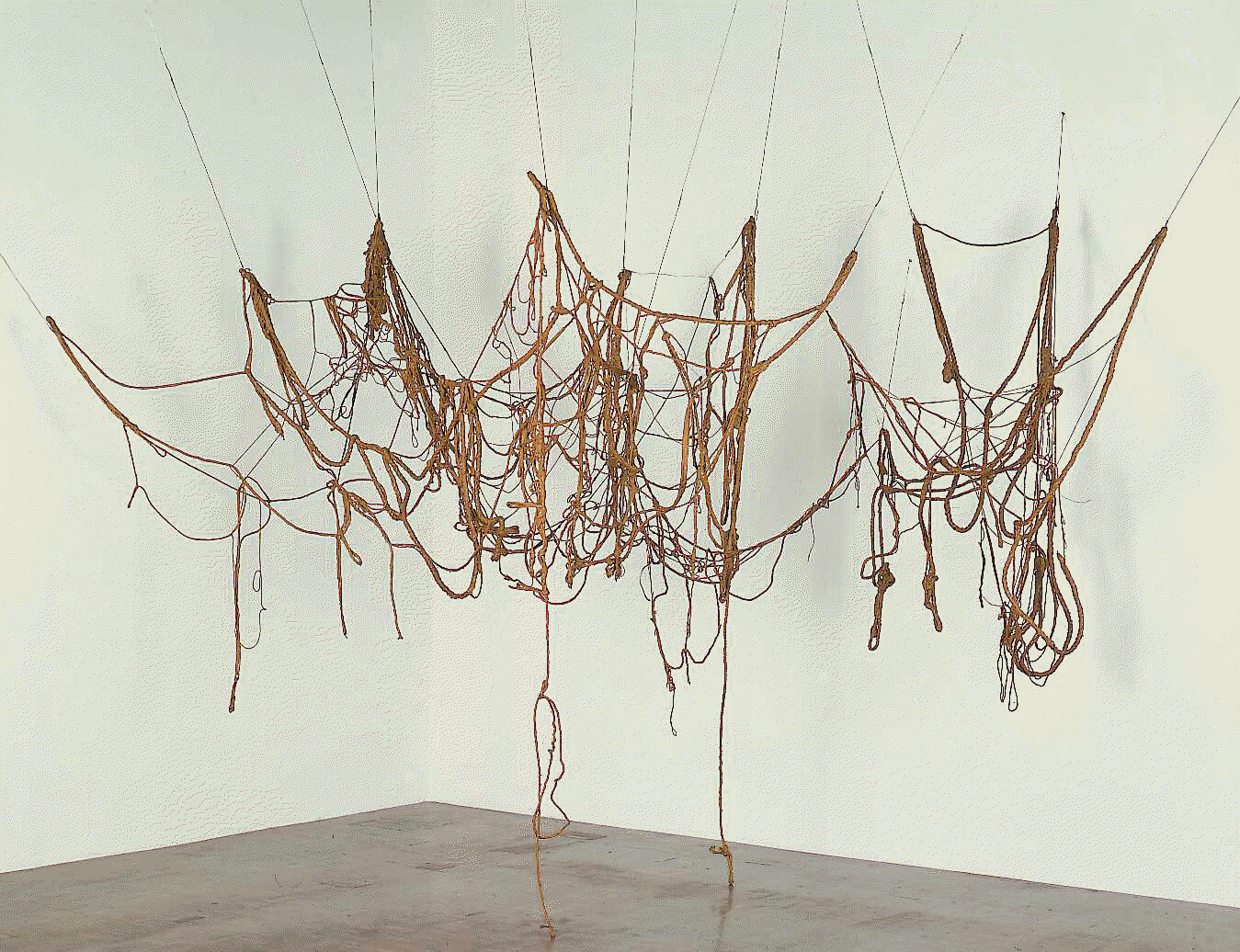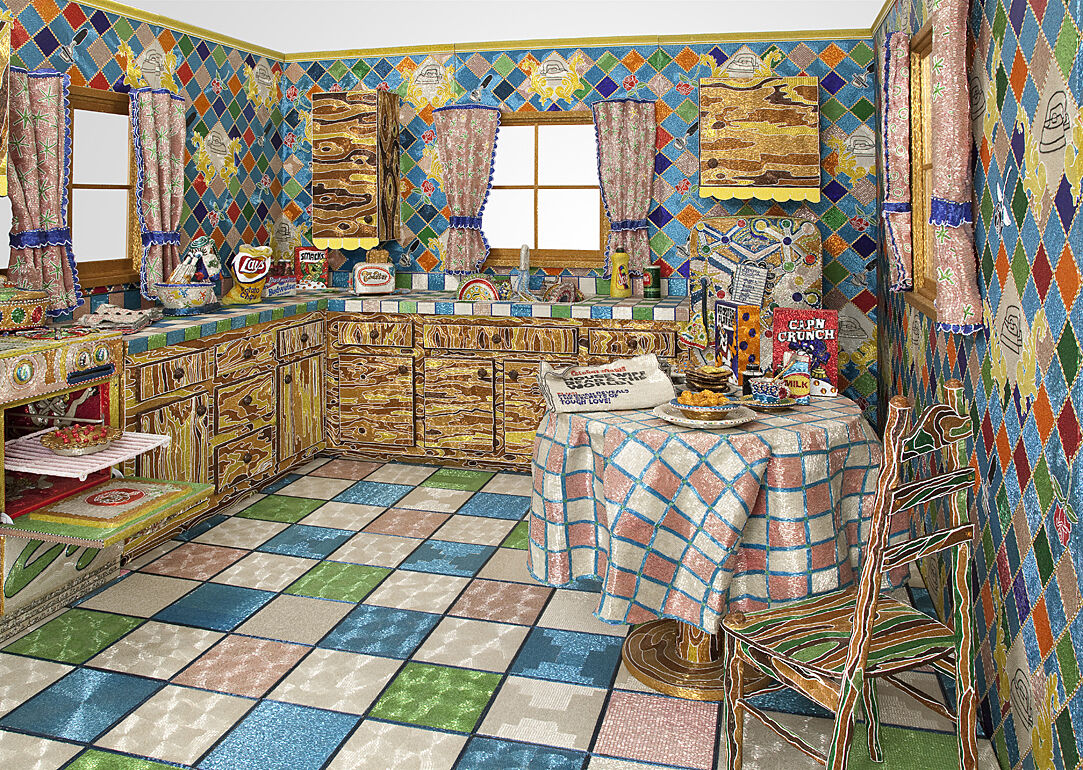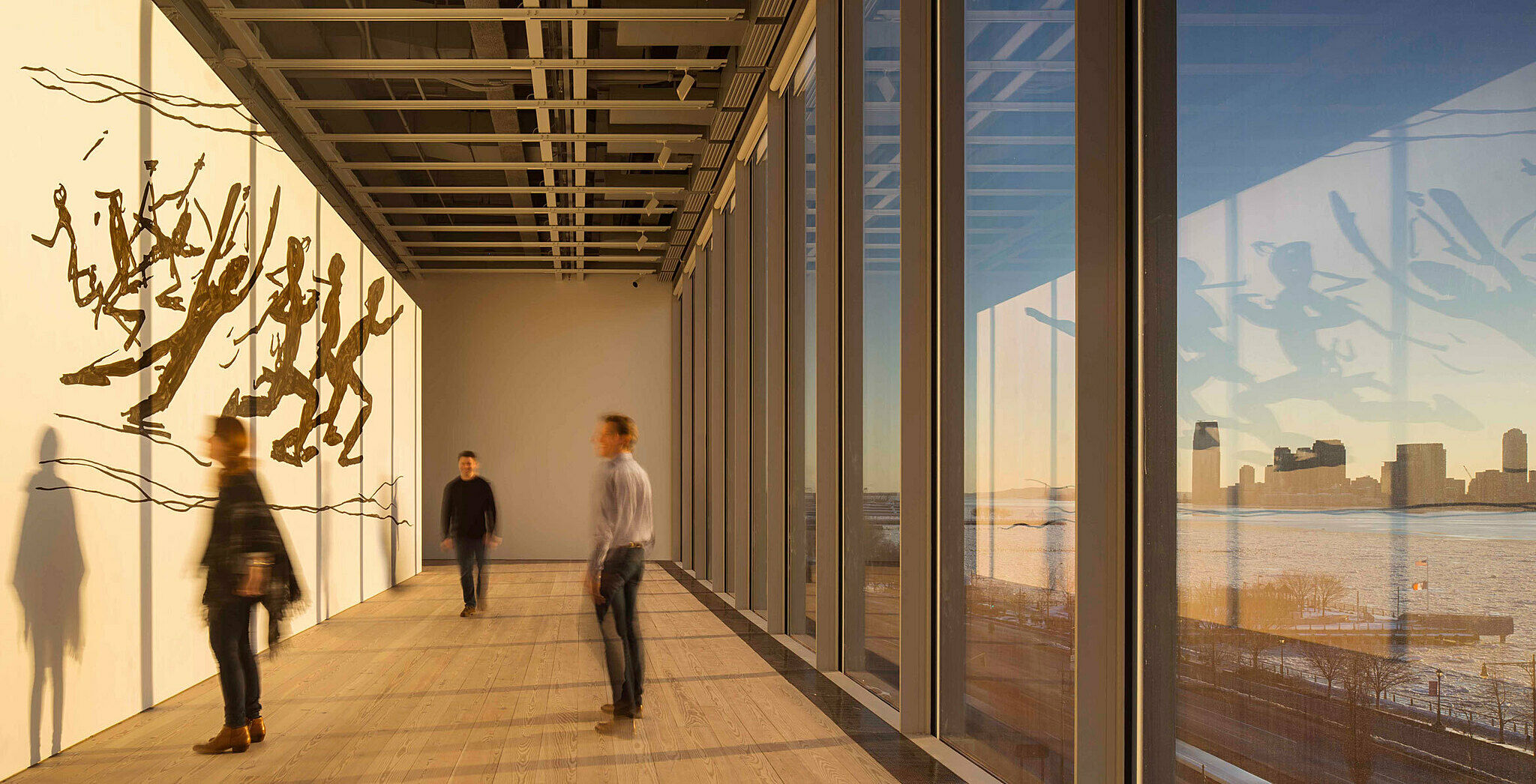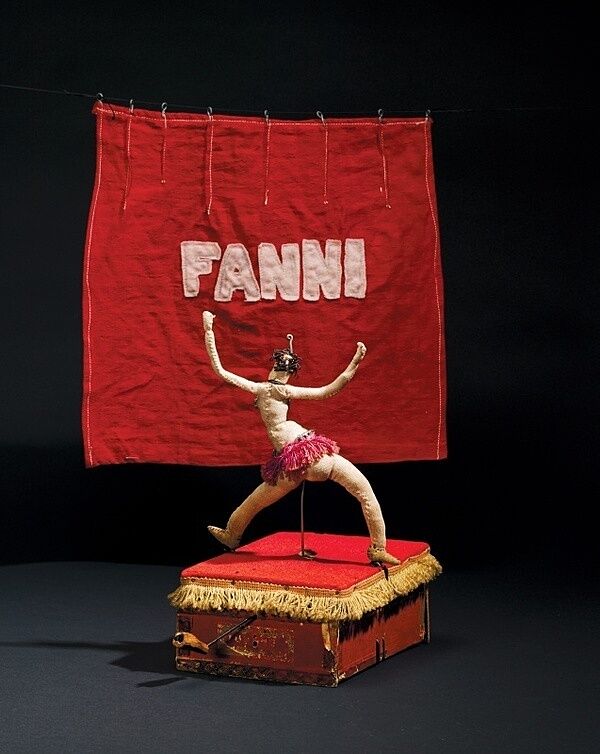Like much of Eva Hesse’s work, No Title substitutes fragile substances and irregular, organic forms for the rigid geometries and industrial materials of Minimalism, one of the dominant modes of art-making in the mid-1960s. The sculpture is one of Hesse’s last works before her untimely death at the age of thirty-four. To create it, Hesse dipped two separate pieces of knotted rope into liquid latex. The rope then hardened, providing an underlying weblike structure for the sculpture’s gracefully arching loops and dense, twisted segments. It attaches to the ceiling and walls in thirteen points, but these placements are flexible to allow for variable installations. This mutability was in keeping with Hesse’s intention for the work. A drawing she made while conceptualizing the piece was accompanied by a note which read, "hung irregularly tying knots as connections really letting it go as it will. Allowing it to determine more of the way it completes its self."
Visual description
Not on view
Date
1970
Classification
Sculpture
Medium
Latex, rope, string, and wire
Dimensions
Dimensions variable
Accession number
88.17a-b
Credit line
Purchase, with funds from Eli and Edythe L. Broad, the Mrs. Percy Uris Purchase Fund, and the Painting and Sculpture Committee
Rights and reproductions
© The Estate of Eva Hesse. Courtesy of Hauser & Wirth; photograph by Sheldan C. Collins

